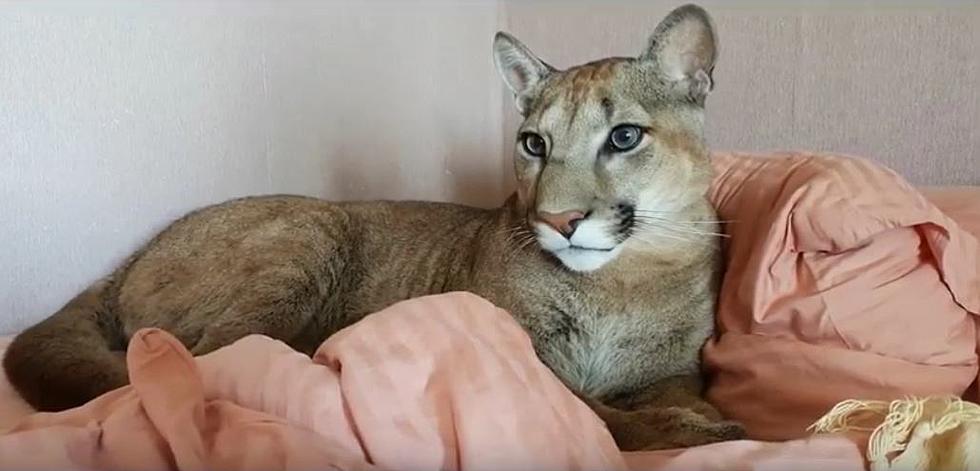
80 Pound Pet Cougar from NYC Transported to Arkansas Refuge
An 80-pound, 11-month-old female cougar that belonged to a New York City resident was given up to proper authorities after keeping the cougar as a pet in their home illegally, according to Kelly Donithan of the Humane Society of the U.S.
According to a Humane Society press release yesterday, the cougar, "Sasha" spent the weekend in a Bronz Zoo for veterinary care and then was transported to the Turpentine Creek Wildlife Refuge in Eureka Springs, Arkansas. Turpentine Creek is a home for abandoned, abused, neglected big cats where they will receive lifelong care.
Visitors are then allowed to visit Turpentine Creek to view the animals in their own sanctuary.
Turpentine Creek president Tanya Smith said that idea of keeping these big cats as pets may seem exotic, but it can be dangerous for the people trying to care for the animals as well as their neighbors.
Many of the animals wind up escaping from their owners only to cause harm to the public they come in contact with and most have to be put down. Female cougars can live 12-17 years in captivity and can grow up to 140 pounds. These exotic cats eat mainly raw meat but in the wild, they feed on smaller animals such as coyotes, porcupines, and raccoons, according to an animal curator with The Turpentine Creek Wildlife Refuge.
Sara Amundson, president of the Humane Society Legislative Fund, said, this incident is a textbook example of why Congress must, once and for all, pass the Big Cat Public Safety Act.”
If signed into law, the Big Cat Public Safety Act would strengthen existing laws to prohibit the breeding and possession of big cat species such as lions, tigers, cheetahs, and jaguars, except by qualified entities.
The New York State Department of Environmental Conservation, New York City Police Department, and the Bronx Zoo were instrumental in helping get the cougar out of a private home in NYC.
LOOK: Here are the pets banned in each state
WATCH OUT: These are the deadliest animals in the world
More From Kicker 102.5









